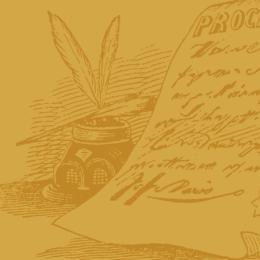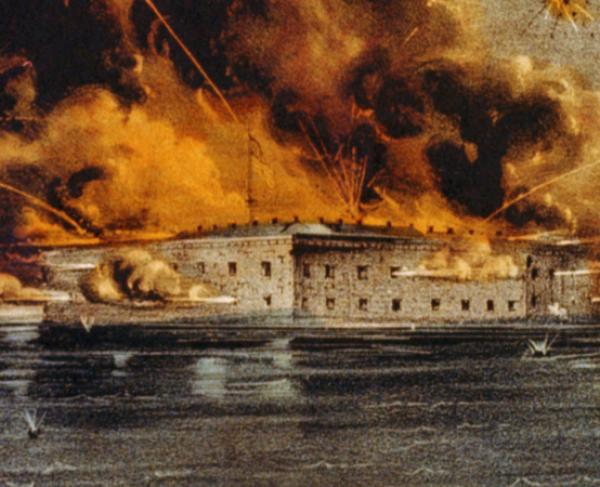Hobbes, Locke, and the Social Contract
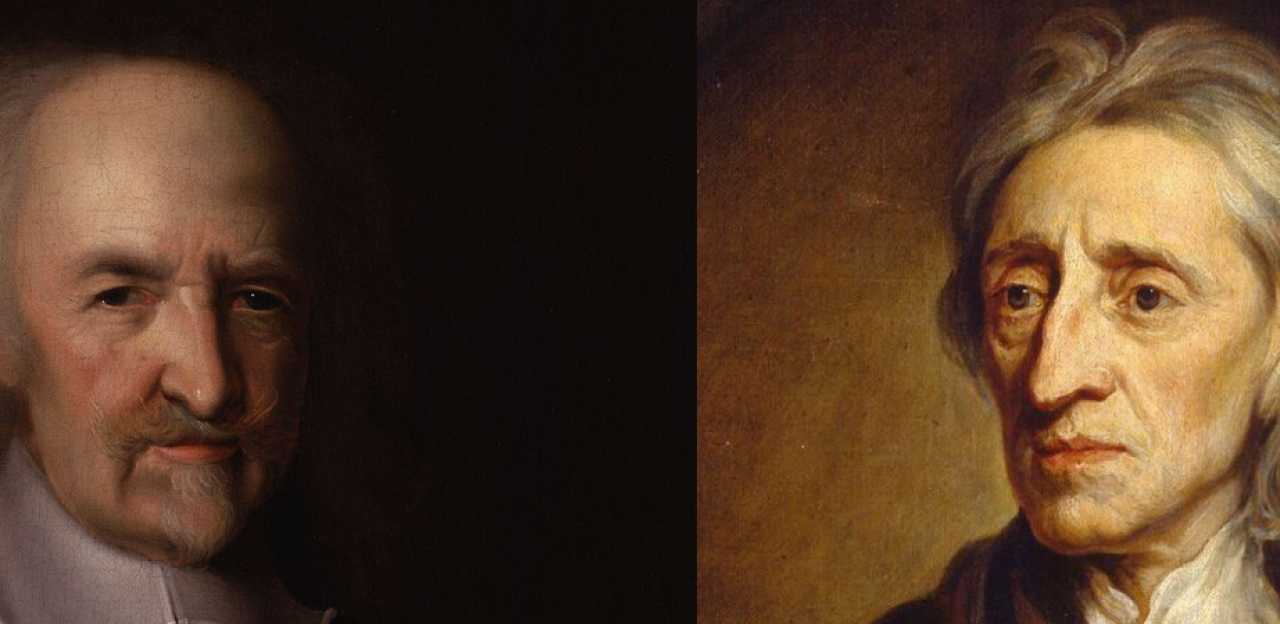
The 17th century was among the most chaotic and destructive the continent of Europe had ever witnessed in the modern era. From 1618-1648, much of Central Europe was caught in the throes of the Thirty Years War, the violent breakup of the Holy Roman Empire. The conflict marked by religious violence between Catholics and Protestants, shameless dynastic maneuvering, famine, disease, and other unimaginable atrocities, still ranks among one of the largest disasters to affect Europe to this day. England and Scotland also became engulfed in a civil conflict in this period between royalist supporters of the Stuart Dynasty and supporters of Parliamentary rights that had religious dimensions as well. Though the war only lasted approximately ten years, the instability it caused in the form of continuing guerilla warfare, famine, revolution, and intermittent rebellion lasted for the next few decades. These decades of suffering and instability produced by these wars raised many questions about human nature, civil society, and most importantly, how to structure government to effectively prevent further breakdowns in public order. This had the side effect of producing two of the brightest political minds in the English philosophical tradition: Thomas Hobbes (1588-1679) and John Locke (1632-1704). Hobbes and Locke each stood on fundamentally opposing corners in their debate on what made the most effective form of government for society. Hobbes was a proponent of Absolutism, a system which placed control of the state in the hands of a single individual, a monarch free from all forms of limitations or accountability. Locke, on the other hand, favored a more open approach to state-building. Locke believed that a government’s legitimacy came from the consent of the people they governed. Though their conclusions on what made an effective government wildly differed, their arguments had an enormous impact on the later philosophers of the Enlightenment era, including the Founding Fathers of the American Revolution.
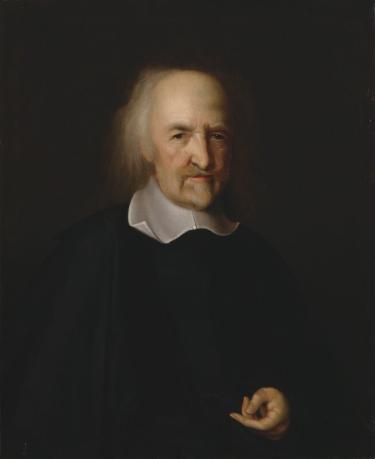
Though Hobbes and Locke lived in roughly the same period and witnessed much of the same events, their careers took them on drastically different paths that had a drastic impact on their respective philosophies. Both men grew up in relatively undistinguished families that were still wealthy enough to give them extensive educations, but Hobbes’ father was an Anglican vicar while Locke grew up in a Puritan family. After receiving his doctorate, Hobbes became heavily associated with William Cavendish, who became King Charles I’s financier during the Civil War, and briefly became the future Charles II’s tutor in mathematics. This placed Hobbes firmly on the royalist side during the Civil War, and forced him to spend much of his career in exile after Charles I’s execution. Locke, on the other hand, was the son of a cavalry officer in fellow Puritan Oliver Cromwell’s New Model Army, placing him firmly on the Parliamentary side in the war. As an adult, Locke worked in medicine as well as parliamentary politics under the patronage of Anthony Ashley Cooper, known as Lord Ashley and one of the founders of the English Whig movement, which sought to continue the struggle against Absolute Monarchism after the 1660 Restoration of the Stuart Dynasty. Like Hobbes, Locke also briefly faced exile when he was suspected of insurrection in the years leading up to the Glorious Revolution, and so fled to the Netherlands. Clearly, both of these men were greatly influenced by the politics surrounding them, and it is easy to see their debate as a microcosm for a much greater political struggle. Examining the actual nuances of their reasoning, however, reveals a good deal of similarities between the two men.
Hobbes and Locke lay out their arguments with very similar structures, beginning with an exploration into the “State of Nature,” essentially the human condition before the development of civilization, to answer why people develop societies in the first place. For Hobbes, the State of Nature was a state of war, essentially a purely anarchic dog-eat-dog world where people constantly struggle over limited power and resources, a life which Hobbes described as “solitary, poor, nasty, brutish, and short.” The act of forming a state, in Hobbes’ view, was therefore and effort to stem this cycle of violence, in which the population collectively put their faith in a stronger power than their own. There were two key influences on Hobbes in forming this view. The first was his own personal experiences during the English Civil War. In Hobbes’ view, the destruction and mayhem wrought by the Civil War outweighed any form of tyranny the Stuarts could bring to bear. The second was the Ancient Greek Historian Thucydides, whose work on the Peloponnesian War, a decades-long conflict between the city-states of Athens, Sparta, and their respective allies, Hobbes wrote the first English translation. Thucydides believed that states and individuals are ultimately rational actors that will act primarily on behalf of their own self-interest, no matter what higher ideals they claim to aspire to. For him, this meant that stronger actors naturally dominate weaker ones, summed up in one dialogue as, “the strong do what they can, and the weak suffer what they must.” Might makes right, in other words. This is the basis for what we now call Political Realism, and Hobbes viewed domestic politics through a very similar lens as Thucydides did on the international level, with some important differences though. Thucydides presented his Realist principles as a justification for Athenian Imperialism, but Hobbes takes a different approach. For Hobbes, people do not submit to a higher authority because it is naturally stronger than they are. Hobbes’ State of Nature is so chaotic precisely because people are essentially equal and will perform the same actions in their self-interest. Instead of a top-down subjugation, Hobbes saw the formation of a state as a collective approach in which people willingly and rationally gave up some of their freedoms in exchange for protection from the kind of anarchy he so dreaded. All of civilization, arts, engineering, letters, etc., was built on this fundamental premise. Therefore a proper government should be as adept at preventing social discord as possible, which meant not dividing the powers of the state divided among different branches, but united under the auspices of one person, the monarch. Hobbes’ philosophy is actually best summed up on the cover of his most famous treatise, The Leviathan, which shows a massive monarchical figure made up of the teeming subjects that have willingly submitted to his rule to keep the peace.
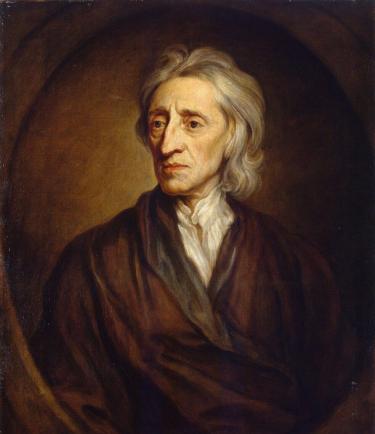
John Locke, naturally, took a very different stance. For Locke, the State of Nature was not of a state of war, but a state of freedom. In fact, it was a state of purest freedom, where people could act however they wished without restriction, but this created a paradox, as a world of absolute freedom created an environment in which the freedom of one individual could violate the natural rights of another. Locke believed that all people possess three fundamental rights: life, liberty, and property. He argued that these rights are both natural, meaning that originate in nature itself, as well as inalienable, meaning that they cannot be taken away, only violated. Locke also argued that individuals have a moral duty and rational interest to preserve their rights. Another problem Locke attributed to the State of Nature was a lack of impartial justice. When conflict arises between two parties regarding violations of their rights, Locke argued that neither one had the means to decisively resolve the situation peacefully, as both regarded their own position as the true and correct one and were too biased and personally invested to offer an objective viewpoint. Like Hobbes, Locke believed that people were ultimately rational actors who sought to avoid violent conflict wherever possible, and so in such a situation, opposing sides consented to allow a third party to mediate the case, let them deliver a verdict of their own, and agree to hold by that verdict. That, to Locke, is where the origins of government lie, not in the population agreeing to submit to a higher authority, but the population itself agreeing to a mediator that could guarantee the preservation of their natural rights and balance liberty and justice. This is why having the consent of the governed is of such great value for Locke because the government cannot fulfill its basic function if the population cannot agree to its formation in the first place.
In spite of their many differences, both Hobbes and Locke were both instrumental to the development of what we now call the Social Contract, the fundamental agreement underlying all of civil society. It is fair to say that today we live in Locke’s world rather than Hobbes, with a prevalent emphasis on the importance of human rights and representative government, but that is not to say that Hobbes has nothing of value to add either. After all, the people behind the Declaration of Independence and the Constitution showed a clear preference to Locke’s principles, but that could not stop a Civil War of their own down the line.
Further Reading
- Leviathan By: Thomas Hobbes
- Two Treatises of Government and A Letter Concerning Toleration By: John Locke
- On the Social Contract By: Jean-Jacques Rousseau
